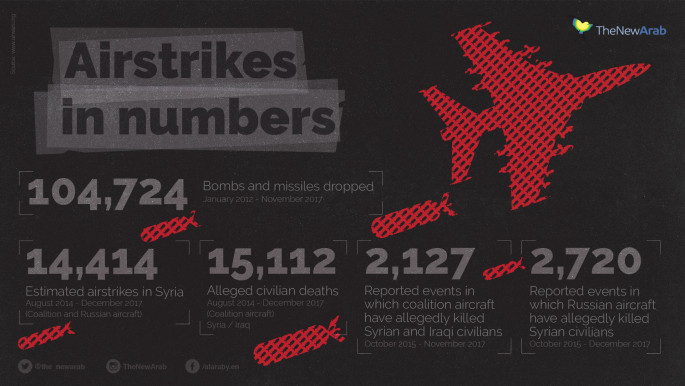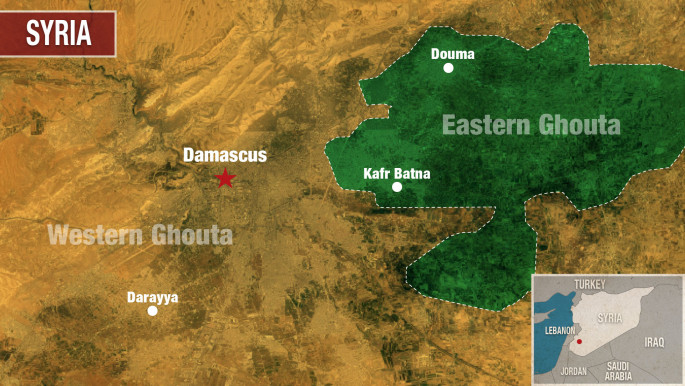UN renews life-saving aid to Syrian rebel areas as Russia abstains
Russia had demanded changes to the aid operation that has allowed since 2014 convoys to cross into war-shattered Syria from Turkey and Jordan without the approval of the government in Damascus.
Russian Deputy Ambassador Vladimir Safronkov argued that the situation in Syria had "changed radically" over the past three years and that cross-border aid was "a legacy of the past".
"We think it is important to gradually draw down this rudimentary scheme which has worked for Syria's division," Safronkov told the council.
The resolution put forward by Egypt, Japan and Sweden was adopted by a vote of 12 in favour, with Russia, China and Bolivia abstaining.
The United Nations maintains that the cross-border deliveries are a lifeline to Syrians living in rebel-held territory because the government in Damascus has heavily restricted aid shipments to those areas.
More than 13 million people need humanitarian aid in Syria, now in its seventh year of war.
 |
The Syrian regime continues bombing its population, using hunger as a war tool |  |
Cross-border aid reaches one million Syrians per month, on average, according to UN aid officials.
Despite its complaints, Russia did not resort to its veto power to block the measure as it did last month to bury a UN-led probe of chemical weapons attacks in Syria.
Russia has used its veto 11 times at the council to thwart action directed at its Syrian ally.
Moscow had argued that the aid operation undermines Syria's sovereignty because aid agencies must notify Damascus, but not seek its permission, for the deliveries inside Syria.
Safronkov said aid agencies must return to the "traditional" approach of working with the Syrian government on providing humanitarian assistance to the entire country.
The United Nations must "make plans for a gradual withdrawal from this cross-border scheme," he said.
Syrian forces have made major military gains since Russia's intervention in the war in 2015, retaking large swathes of rebel-held territory.
After Russia complained that cross-border aid was falling into the hands of "terrorists," the council agreed to ask UN Secretary-General Antonio Guterres to review the operation in six months and recommend ways to strengthen monitoring.
Aid critical
Welcoming the adoption, US Deputy Ambassador Michele Sison stressed the aid was of "utmost importance to reduce the suffering in Syria".
France also said humanitarian aid was critical for Syrians and singled out the crisis in Eastern Ghouta, a rebel-held area near Damascus that has been under government siege.
With 400,000 people trapped with no access to food and medicine, Eastern Ghouta is "a new Aleppo in the making," said French Ambassador Francois Delattre, referring to Syria's second city, which fell to government forces after months of siege.
"The Syrian regime continues bombing its population, using hunger as a war tool," said Delattre. "This constitutes a war crime."
"Tiny amounts of aid have been allowed" in Eastern Ghouta, said UN aid chief Mark Lowcock.
More than 500 people are awaiting medical evacuation from the rebel-held area including 137 children, five of whom are suffering from acute malnutrition.
At least 16 Syrians have died waiting for permission to receive treatment just a few miles outside of Eastern Ghouta, among them three in the last few days, said Lowcock.
Close to three million Syrians live in besieged or hard-to-reach areas, with little access to humanitarian aid.
Reporting on the latest failed round of peace talks, UN envoy Staffan de Mistura said it was time for the United Nations to provide some ideas on the next steps to move towards a draft constitution and elections.
The Syrian conflict began when the Baath regime, in power since 1963 and led by Assad, responded with military force to peaceful protests demanding democratic reforms during the Arab Spring wave of uprisings, triggering an armed rebellion fuelled by mass defections from the Syrian army.
The brutal tactics pursued mainly by the regime, which have included the use of chemical weapons, sieges, mass executions and torture against civilians have led to war crimes investigations.
![syria ghouta [getty] syria ghouta [getty]](/sites/default/files/styles/large_16_9/public/media/images/41FD8AF2-4B8A-41F6-936A-1D9D7FF74024.jpg?h=d1cb525d&itok=_R77Fo2n)



